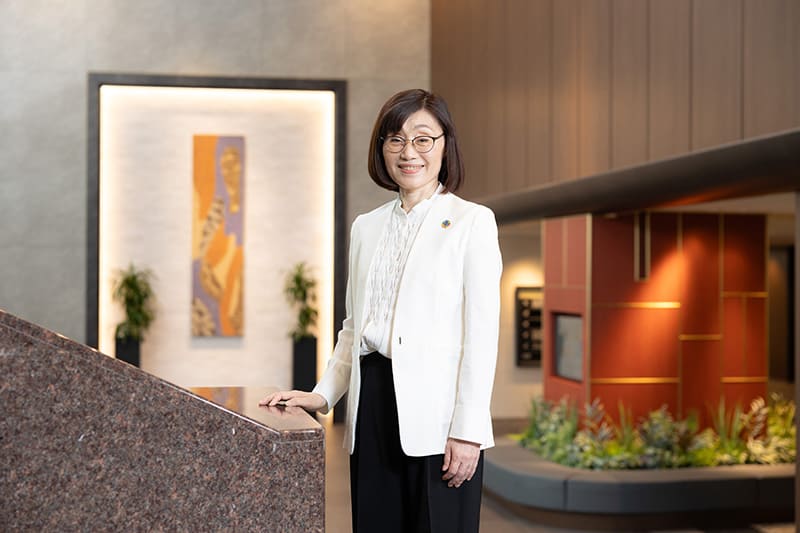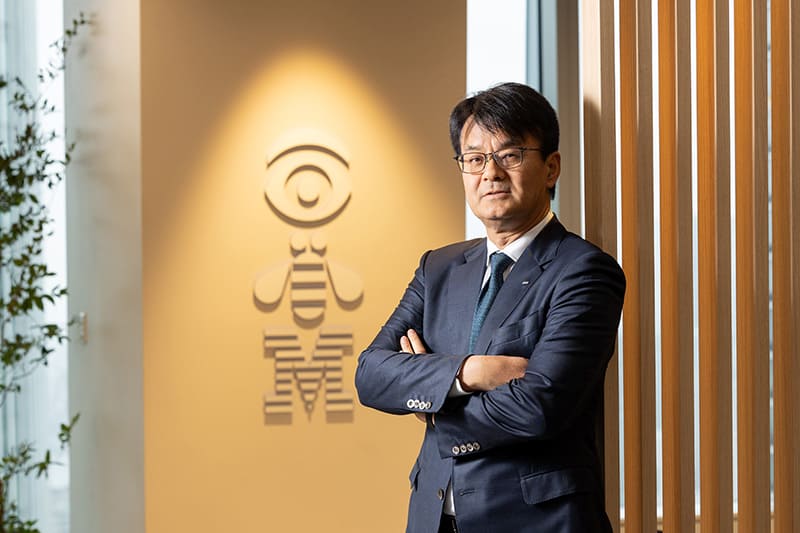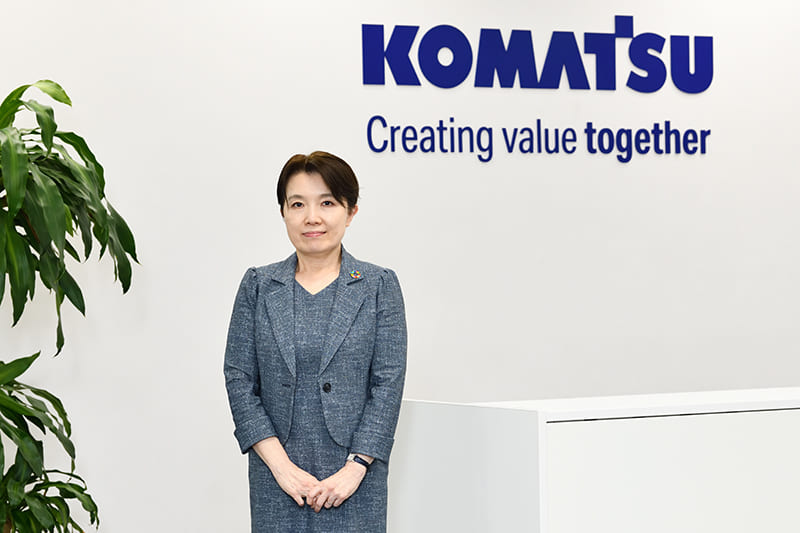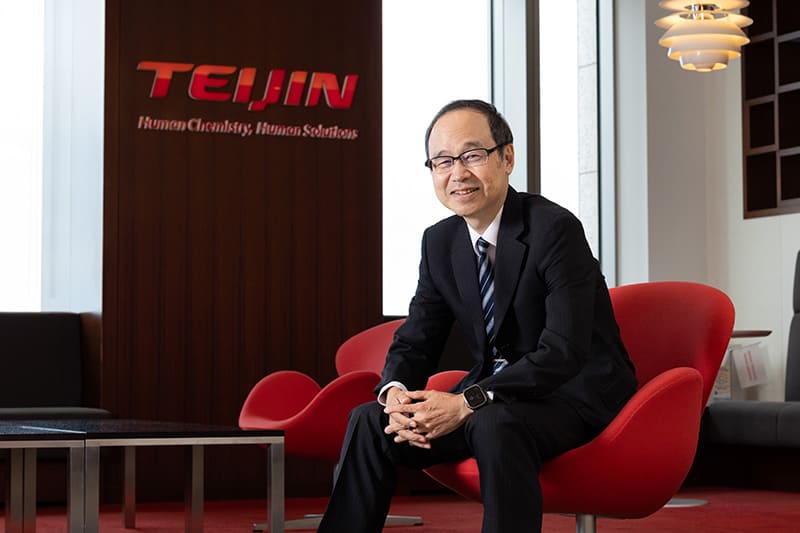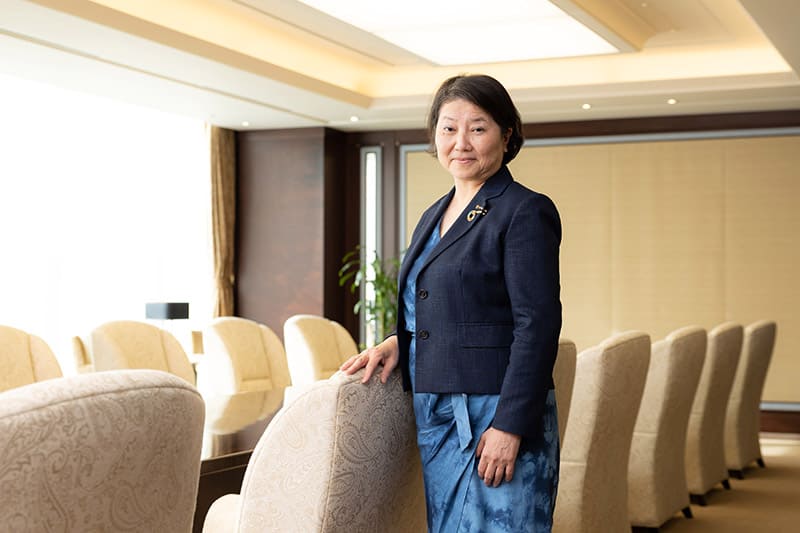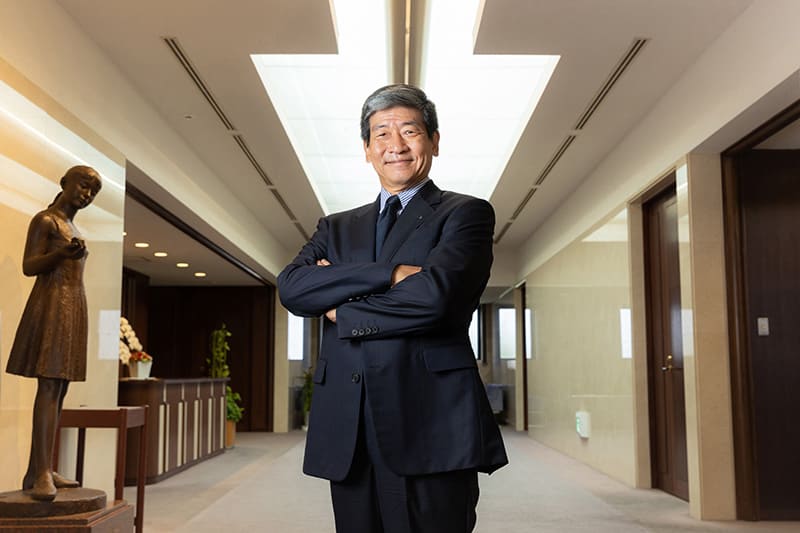September 13, 2024
Realizing a sustainable future via ‘digital commons’
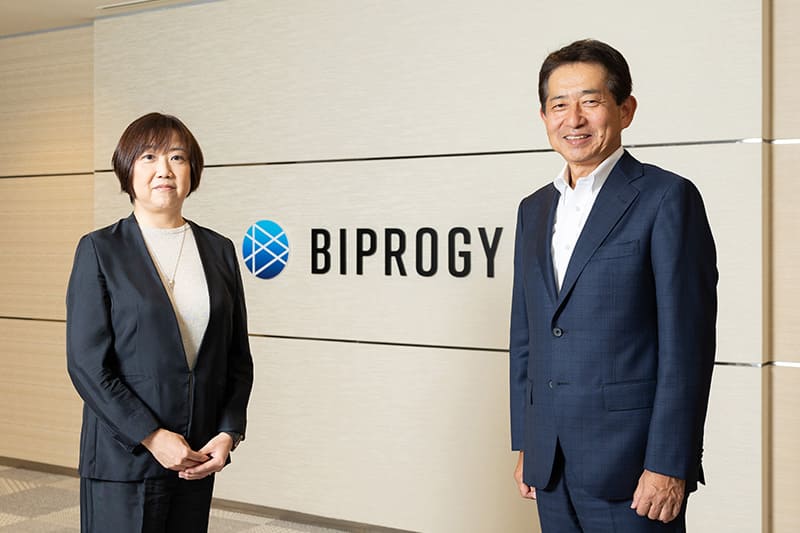
Building a brand from scratch is never easy — but Biprogy tackled the task when it changed its name from Nihon Unisys in 2022.
The Japanese information technology service provider decided on the switch primarily because its main business had been largely transformed over the years. When it was launched in 1958, it mostly sold mainframe computers as the sole agent in Japan of the U.S. computer firm Unisys, one of its former major shareholders. It was the first company to introduce commercial computers to Japan.
Although the U.S. firm sold its stake in 2006, Nihon Unisys purchased the right to continue using the trademark to sell computers in Japan, and also provided its own system network services amid a global decline in mainframes.
“The pandemic was another factor that motivated us to change our company name,” President and CEO Noboru Saito said in a recent interview, part of a monthly series by Naonori Kimura, a partner for the consulting firm Industrial Growth Platform Inc.
Post-COVID landscape, name
Saito said COVID changed the business landscape. Companies in general used to prioritize profits for the sake of shareholders, but the pandemic made them more inclined to look for ways to contribute to society for future generations. “We decided to change the corporate name to show our strong willingness to our workers and the world that we would change ourselves further,” he said. They also formulated a corporate purpose and vision, setting their thoughts down in words.
Biprogy says its name derives from the first letters of “the seven colors visible when light is refracted”: blue, indigo, purple, red, orange, green and yellow. The company wanted its name to reflect the diversity of its people and their desire to “mix the colors of light” of various people together for a brighter future. But changing its name and logo was not an easy process. Some workers who opposed the idea said that throwing away the familiar name would mean dumping a brand built up over decades.
By that time, Biprogy’s business had already proved its own strength. In 2007, it established the first banking system based on Microsoft Windows’ open architecture for Hyakugo Bank, a regional bank headquartered in Mie Prefecture. This was the point at which the company achieved something considered extremely difficult because the task also required various third-party systems for things like databases, security and online networks. “Since then, we have worked on establishing open-source systems for nearly two decades,” Saito said. “We are very confident of developing open architecture by gathering the best systems for our customers, evaluating them and providing them as a package.”
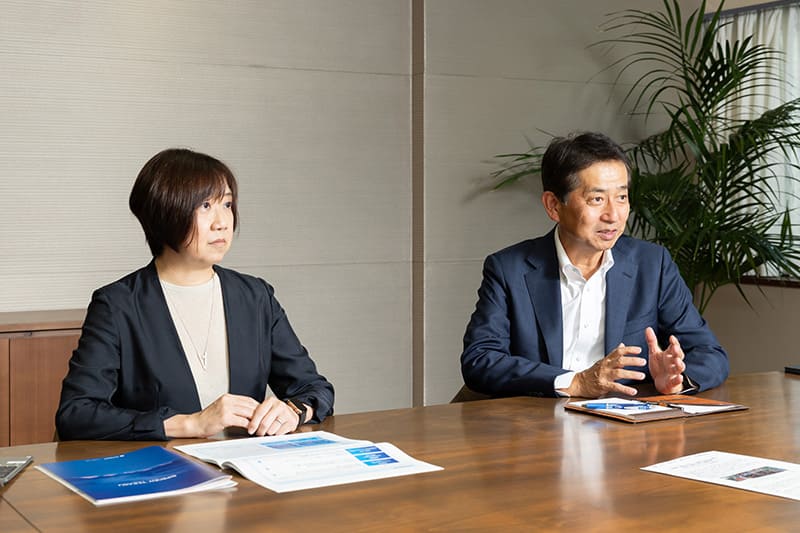
Developing a digital commons
In creating its corporate vision and purpose, Saito said, “We needed something like a lighthouse.” Although the company had an advantage in developing services through leveraging open-source software and adapting them to best suit each customer, it needed a vision to inspire and motivate its staff, he said.
They formulated “Vision 2030,” saying, “We will develop the Digital Commons which is a platform that helps create a society where everyone can live happily.” They also set its corporate purpose: “Create a sustainable society using foresight and insight to unlock the full potential of technology.”
A digital commons is an open platform that supports collaboration among companies, organizations and individuals and shares their assets, in order to better address issues and raise economic value. The vision was formulated after the company spent a year conducting hearings throughout the staff. “The task was to share our view and textualize it,” said Taeko Sawakami, a director of Biprogy, in the same interview.
“When we have to address social issues,” Saito said, “the right thing to do is not for one company to beat others or work for its benefit alone. Various companies need to utilize their assets with each other, including dormant ones. That’s the original concept.”
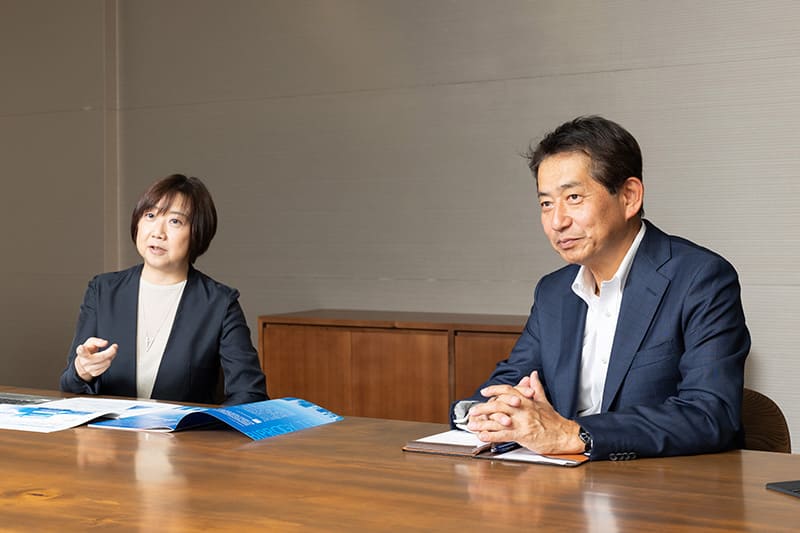
Reducing waste through AI
One example of its services being used to solve social issues is in reducing waste. In 2020, Biprogy launched AI-Order Foresight, a cloud-based service for automating orders using artificial intelligence forecasts. It was adopted by the Japanese supermarket chain Life and other retailers so they could automate a complex, burdensome task and correctly predict what they needed to order, and no more, so as to avoid food loss.
In order to spark innovation, the company urges young people to try new things. Also, it focuses on open innovation by working with startups. It holds a morning meeting every month for young workers where startups can make pitches, internal groups can present ideas on new ventures and others can share their projects’ progress and problems. Although the original face-to-face meeting starting at 8 a.m. was not very popular despite offering doughnuts and coffee, the online version that kicked off during the pandemic attracts as many as 800 workers. “That is how we have nurtured our culture,” Saito said.
“It is very important that Biprogy has arranged things so that workers can really feel that they are growing,” the president said, adding that human capital is their top asset. Sawakami echoed that, saying that what is significant is not people’s titles or departments but the roles they are responsible for. “The content of the roles is more important for their future career than the job titles in an organization,” she said.
Saito said he is determined to use responsible corporate values to raise his company’s monetary value further: “In order to solve social issues, we need to become a company that holds values — otherwise, we won’t be able to attract businesses and people around us.”
Naonori Kimura
Industrial Growth Platform Inc. (IGPI) Partner
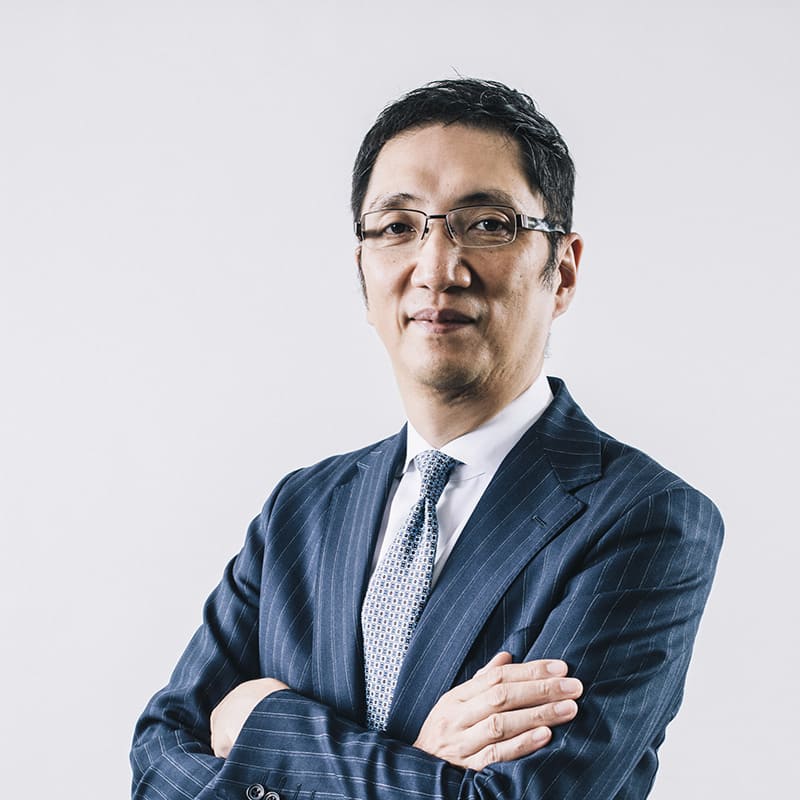
After learning more about Biprogy, I was very impressed at how the company redefined the reason for its existence and continues to express this both internally and externally through important decisions such as its name change and the formulation of “Vision 2030.”
The company’s grand view based on a digital commons aims to solve social issues by bringing together the wisdom of various people. I believe this is not a mere ideal. Biprogy has developed the strength of providing the best open-source services for its customers as well as a culture of defining and evaluating success from a broad perspective. Emphasizing the creation of social value by allying with stakeholders is firmly rooted in the company.
In the world of digital commons, it is extremely important to develop human resources properly because it is essential for workers to motivate themselves by searching for issues and involving various players around them. It is significant that the company has also improved staff motivation in a series of reforms based on people’s so-called “roles,” the central concept in its human-resource development strategy.
In the world of digital business, which tends to be winner-take-all, the focus will be how to form a digital commons and grow as a company at the same time. I am cheering for Biprogy as it takes on this challenge.

